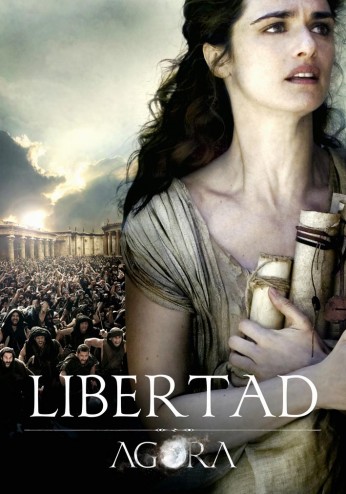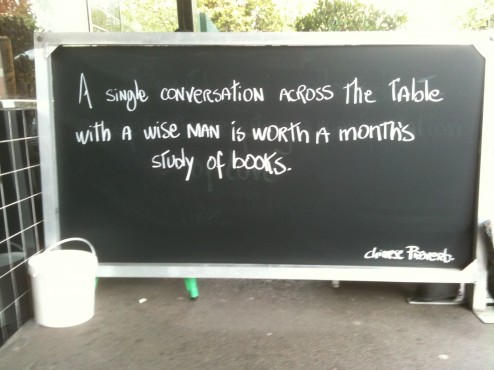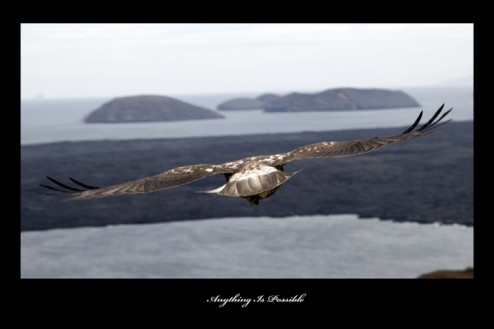 It was the burgeoning of the Dark Ages – a time where a blog like mine that questioned the “truth” would have me (like my new heroine the philosopher Hypatia was) called a witch, stripped naked, skinned alive, torn into pieces and burned.
It was the burgeoning of the Dark Ages – a time where a blog like mine that questioned the “truth” would have me (like my new heroine the philosopher Hypatia was) called a witch, stripped naked, skinned alive, torn into pieces and burned.
Tonight I saw Agora, a movie with Rachel Weisz set in Roman Egypt in the 4th century AD, around the time of the collapse of the Roman Empire. It is based on the book The Rise and Fall of Alexandria (2007) and was a pretty good film that (for better or worse) reminded me of those earlier dark dark periods of human history.
Of course Hypatia wasn’t the only one to experience the wrath of brainwashed barbarians (I need not mention the witch hunts, inquisitions and crusades that followed) but after two hours of admiring this curious and courageous thinker, it wasn’t the most satisfying ending to the epic. Don’t worry, they don’t actually skin her on screen – this was my post-movie research discoveries.
Geez humanity sucks.
“It’s the pyramid,” said my friend as we left the cinema. He’s a touch more cynical than me. “There will always be horrors and injustices, it takes different forms but it’s always there – it’s simply human nature. It’s the way we organise our societies, it’s the way those with power control the masses.”
Not least of the horrors of the movie was the reminder of the oppression of women, when a beloved student of the philosophy teacher is read a bible verse that says a woman is not allowed to have influence over a man.
That being said there are some great quotes, my favourite two:
1. When accused of believing “in nothing,” Hypatia says strongly, “I believe in philosophy”.
2. When her student tries to persuade her to get baptised she explains, “Synesius, you don’t question what you believe, or you cannot… But I must.“
It is worth noting that while the movie is positioned around the burning of the Alexandria Library, my quick googling did reveal a little controversy surrounding the exact historical location of the event. Some blame Caesar 400 years earlier (even though books from the library were recorded to have existed after this date), and others (an anti-Muslim) blame Omar (a Muslim)… I guess everyone wants a scape goat. I definitely wouldn’t want to have the burning of knowledge attached to my name.
Either way the cycle of book burnings, of re-writing history, and of the (ab)use of religion in the name of power, is a story that seems to repeat itself periodically as the next empire rises and falls.
I wonder if next time, now with our growing library of knowledge on the internet, are we more safe or less? Will the fire be replaced with a virus that wipes history from our memory?
What baffles me the most of about such history, is that it happened such a short time ago. 370 AD is less than 18 of my Opa’s lifetimes and the Dark Ages finished only around four of my Opa’s life times ago! So while all this might be classified as “ancient history”, it is really not long ago at all. The deep-seeded collective memories this movie retells reminds us of where we have come from and the psychological issues that have probably been passed onto us and may still be living on today.
I guess the biggest irony of it all is that we stupid humans still allow and go out to fight barbaric wars with guns and bombs and innocent lives being ruined, all of which is convinced to us still under some kind of manipulative fear-driven ideological or religious banner.
All I can say is that I hope my friend’s comments on human nature are wrong. I hope that somehow we humans can smarten up, learn from the past, get over our fears, and reclaim the curious and courageous humanity that Hypatia presents.
[youtube]http://www.youtube.com/watch?v=bTZZHPR5kEo[/youtube]

 So I’ve been talking about this book for far too long – the travel memoir about South America. I’ve been working on it for too long, editing it for too long, putting my favourite snippets next to my favourite songs in attempt to get back in the head space for too long, and procrastinating the rejection for waaaaay too long. But it’s scary. The idea of friends reading your work is scary enough, let alone professionals whose opinion can make or break you.
So I’ve been talking about this book for far too long – the travel memoir about South America. I’ve been working on it for too long, editing it for too long, putting my favourite snippets next to my favourite songs in attempt to get back in the head space for too long, and procrastinating the rejection for waaaaay too long. But it’s scary. The idea of friends reading your work is scary enough, let alone professionals whose opinion can make or break you. Today I got my first rejection from an academic journal I submitted a paper too.
Today I got my first rejection from an academic journal I submitted a paper too.